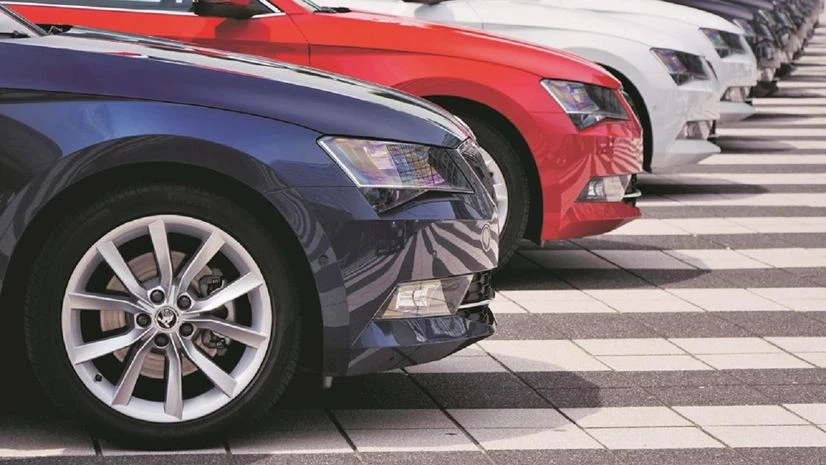)
A government source stated that the intention behind these regulations is to “formalise” the scrapping of old vehicles in India and make automobile makers “active stakeholders” on this matter so as to decrease air pollution.
The Union environment ministry is likely to soon issue regulations that will make it mandatory for automobile companies to recycle a certain percentage of steel from old vehicles from the next financial year onwards, sources privy to the development told Business Standard on Tuesday.
“We recently held a meeting with members of the Society of Indian Automobile Manufacturers (SIAM). The final regulations are likely to be issued in the next 10 days,” a government source informed.
There are just 70 registered vehicle scrapping facilities (RVSFs) in India, as per SIAM’s website. With the new regulations set to come into effect in just seven months, automobile manufacturers will need to make significant investments to establish their own or partner with third-party RVSFs to comply with the new regulations, according to sources.
On January 30, the environment ministry had issued a draft notification under the Environment (Protection) Rules, 1986, outlining regulations for “Extended Producer Responsibility (EPR) for end-of-life vehicles.”
According to sources, a delegation from the Society of Indian Automobile Manufacturers (SIAM), which included representatives from Hero MotoCorp, Mahindra & Mahindra, Maruti Suzuki India, Ashok Leyland, JSW MG Motor, and TVS Motor, met with the environment ministry a “few days ago.” Following discussions with this delegation, the ministry agreed to provide some flexibility regarding the steel recycling mandate mentioned in the draft notification.
The draft notification mentioned that from 2025-26 onwards, each automobile manufacturer would be required to annually recycle or recover a minimum of 10 per cent of the steel used in vehicles placed on the market in each year between 2005-06 and 2009-10. This recovery must be done through either its own RVSF or a third-party RVSF.
Further, the draft notification stated that from 2030-31 onwards, the minimum recycling/recovery requirement would be 20 per cent for vehicles placed on the market between 2010-11 and 2014-15. It added that from 2035-36 onwards, the minimum steel recycling/recovery requirement would be 30 per cent for vehicles placed on the market between 2015-16 and 2019-20.
These limits are likely to be revised, sources mentioned. The limit for the first category may be reduced from 10 per cent to 8 per cent, for the second category from 20 per cent to 13 per cent, and for the third category from 30 per cent to 18 per cent, they added.
The environment ministry, SIAM, Hero MotoCorp, Mahindra & Mahindra, Maruti Suzuki India, Ashok Leyland, JSW MG Motor, and TVS Motor did not immediately respond to queries sent by Business Standard on this matter.
If automobile companies do not fulfil the aforementioned EPR targets, or if they provide false information, or if they do not recover steel as per process, then an “environmental compensation (penalty)” would be levied from them by the Central Pollution Control Board (CPCB).
A government source stated that the intention behind these regulations is to “formalise” the scrapping of old vehicles in India and make automobile makers “active stakeholders” on this matter so as to decrease air pollution.
The final regulations are likely to allow car companies to formulate and deploy any buyback scheme, deposit refund scheme, etc., to encourage customers to sell or submit their old vehicles to RVSFs so that the automobile makers are able to fulfil their EPR, sources mentioned.
The regulations would make it clear that RVSF must generate an EPR certificate to the car company based on the quantity of steel extracted from processing the end-of-life vehicles. The RVSF will also have to upload the data on an online portal, which would be verified by the CPCB or another authorised agency.
These aforementioned regulations are only related to the recycling of steel and not other items that are present in the car such as batteries, tyres, and used oil, which have their separate regulations related to disposal and recovery.
The EPR regulations for automakers are similar to the regulations that were issued last month when the Centre had mandated that all new products made from non-ferrous metals will have to contain a minimum of 5 per cent recycled content beginning financial year 2028 (FY28). Non-ferrous metals—like aluminium, copper, and zinc—don’t catch rust.
This mandate will progressively increase, reaching 10 per cent in FY29. And by FY31, products made of aluminium will have 10 per cent recycled content, for copper the target is 20 per cent, and 25 per cent for zinc.
First Published: Sep 03 2024 | 8:45 PM IST


































